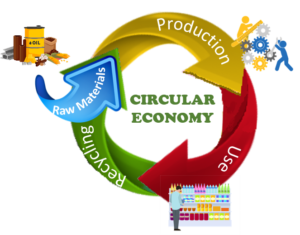“Growing mountains of research suggest that the best way to address American economic inequality, poverty and crime is — you guessed it! — early education programs, including coaching of parents who want help,” writes Nicholas D. Kristof. “It’s not a magic wand, but it’s the best tool we have to break cycles of poverty.” [“Do We Invest in Preschools or Prisons?” New York Times, 26 October 2013] The fact that Kristof can write “you guessed it” indicates that he is aware that most people understand the importance of early education programs and their connection with student success later in life. Most people are also aware that parent involvement is perhaps the single most important key to keeping children on the right educational path.
As I have noted in previous posts, I’ve helped establish a non-profit organization called The Project for STEM Competitiveness whose aims include fostering better teaching of science, math, engineering, and technology subjects and exciting young students about those subjects. Parental engagement with students in those subjects is just as (if not more) critical than what happens in the classroom. Lynn Chwatsky, Vice President of Initiatives and Partnerships, Community Engagement with the Sesame Workshop, insists that even if a parent doesn’t believe they are a science or math person, their engagement can help their children with these subjects. [“Not a ‘Science Person?’ Maybe Your Kid Is!” Huffington Post The Blog, 8 October 2013] She explains:
“What we know is that early exposure to these subjects — regardless of race, income or parents’ highest level of education — is linked to future success. According to the Wall Street Journal, ‘Evidence is mounting about the importance of teaching math in preschool and kindergarten; [without it], they are more likely to struggle later when they face more complicated concepts.’ But here’s a secret: STEM concepts are ready to be discovered in everyday moments and activities. And even more importantly, these STEM discoveries can be fun and enjoyable for adults and kids alike.”
The fact that we know that a good early education helps foster success later in life makes it all the more frustrating that we aren’t doing better at providing such an education. Kristof reports that early education initiatives have significant public support. Early education, he writes, “is one of those rare initiatives that polls well across the spectrum, with support from 84 percent of Democrats and 60 percent of Republicans in a recent national survey.” Secretary of Education Arne Duncan told Kristof that America faces a “magical opportunity” to put in place a national early education program. “When you think how you make change for the next 30 years,” Duncan said, “this is arguably at the top of my list. It can literally transform the life chances of children, and strengthen families in important ways.” It’s also a chance for a dysfunctional Congress to show that they can put aside partisan politics and do something good for the country. Kristof continues:
“The massive evidence base for early education grew a bit more with a major new study from Stanford University noting that achievement gaps begin as early as 18 months. Then at 2 years old, there’s a six-month achievement gap. By age 5, it can be a two-year gap. Poor kids start so far behind when school begins that they never catch up — especially because they regress each summer.”
Writing about that Stanford study, Motoko Rich reports, “Nearly two decades ago, a landmark study found that by age 3, the children of wealthier professionals have heard words millions more times than those of less educated parents, giving them a distinct advantage in school and suggesting the need for increased investment in prekindergarten programs.” [“Language-Gap Study Bolsters a Push for Pre-K,” New York Times, 21 October 2013] The Stanford study is a follow-up to the earlier study. Rich continues:
“The new research by Anne Fernald, a psychologist at Stanford University, which was published in Developmental Science this year, showed that at 18 months children from wealthier homes could identify pictures of simple words they knew — ‘dog’ or ‘ball’ — much faster than children from low-income families. By age 2, the study found, affluent children had learned 30 percent more words in the intervening months than the children from low-income homes.”
Education is all about understanding and one of the purposes of language is to help us understand the world better. Rich explains that “oral language” is also the key to “reading comprehension.” Because the vocabulary of poorer children is less rich than the vocabulary of children from wealthier homes, “the most disadvantaged children face increased challenges once they enter school and start learning to read.” Programs that help enrich the lives of children at a very early age can overcome this disadvantage; especially, if parents get involved. Chwatsky explains that parental involvement can be fun for both parent and child, even in STEM areas, because “learning about the world around us through play and discovery, which is something that every child — and every parent — can get excited about. Bath time is an opportunity to discuss density and gravity by testing whether objects sink or float. Creating a ramp out of paper towel rolls can demonstrate force and motion. Building a structure with wooden blocks can help children understand the concept of engineering.” Every child has a natural curiosity about the world and parents can help them ask the right kind of “why” questions so that learning becomes fun and their child’s vocabulary is enriched. Children enrolled in early education programs can enrich the lives of their parents by telling them what they learned in those programs.
One observer has written, “Good math and science skills are critical to our country’s ability to create a deeper talent pool needed to compete and thrive in the competitive global economy. It is important to have people educated in engineering, math and science for our future. A brief study of world history clearly shows that innovation depends on quite a large number of workers having these degrees in any economy.” [“Why U.S. Lagging Behind in Science and Math Education Could Be Disastrous For Our Future,” Occupy Harvard, 24 December 2012] We now know that those skills are developed from a very, very young age and, like other subjects, they improve as language skills improve. It’s not, however, just a matter of learning words. Context matters. Fernald’s study concluded, “Toddlers learn new vocabulary from context, and the faster a child can get at the words she knows, the more able she is to attend to the next word in the sentence and to learn any new words that follow.” [“Language gap between rich and poor children begins in infancy, Stanford psychologists find,” by Bjorn Carey, Stanford News, 25 September 2013]
During a recent visit to China, Thomas Friedman visited Shanghai’s Qiangwei Primary School. He wanted to find out why “Shanghai’s public secondary schools topped the world charts in the 2009 PISA (Program for International Student Assessment) exams.” Friedman assumed that Shanghai’s schools had discovered a secret. What he learned was, “There is no secret.” [“The Shanghai Secret,” New York Times, 22 October 2013] He explains:
“When you sit in on a class here and meet with the principal and teachers, what you find is a relentless focus on all the basics that we know make for high-performing schools but that are difficult to pull off consistently across an entire school system. These are: a deep commitment to teacher training, peer-to-peer learning and constant professional development, a deep involvement of parents in their children’s learning, an insistence by the school’s leadership on the highest standards and a culture that prizes education and respects teachers.”
We do a lot of hand wringing in the United States. We worry about the future. We lament the global rankings our educational system receives. We fear losing our place on the world stage. The simple fact is that we can change all that. We start with early education programs. We can teach parents about the importance of being involved in their children’s education (both at home and at school). Throwing our hands up in despair is neither a viable option nor a good long-term strategy. Kristof concludes:
“We’ll have to confront the pathologies of poverty at some point. We can deal with them cheaply at the front end, in infancy. Or we can wait and jail a troubled adolescent at the tail end. To some extent, we face a choice between investing in preschools or in prisons. We just might have a rare chance in the next couple of months to take steps toward such a landmark early education program in America. But children can’t vote, and they have no highly paid lobbyists — so it’ll happen only if we the public speak up.”
Sounds like good advice.




